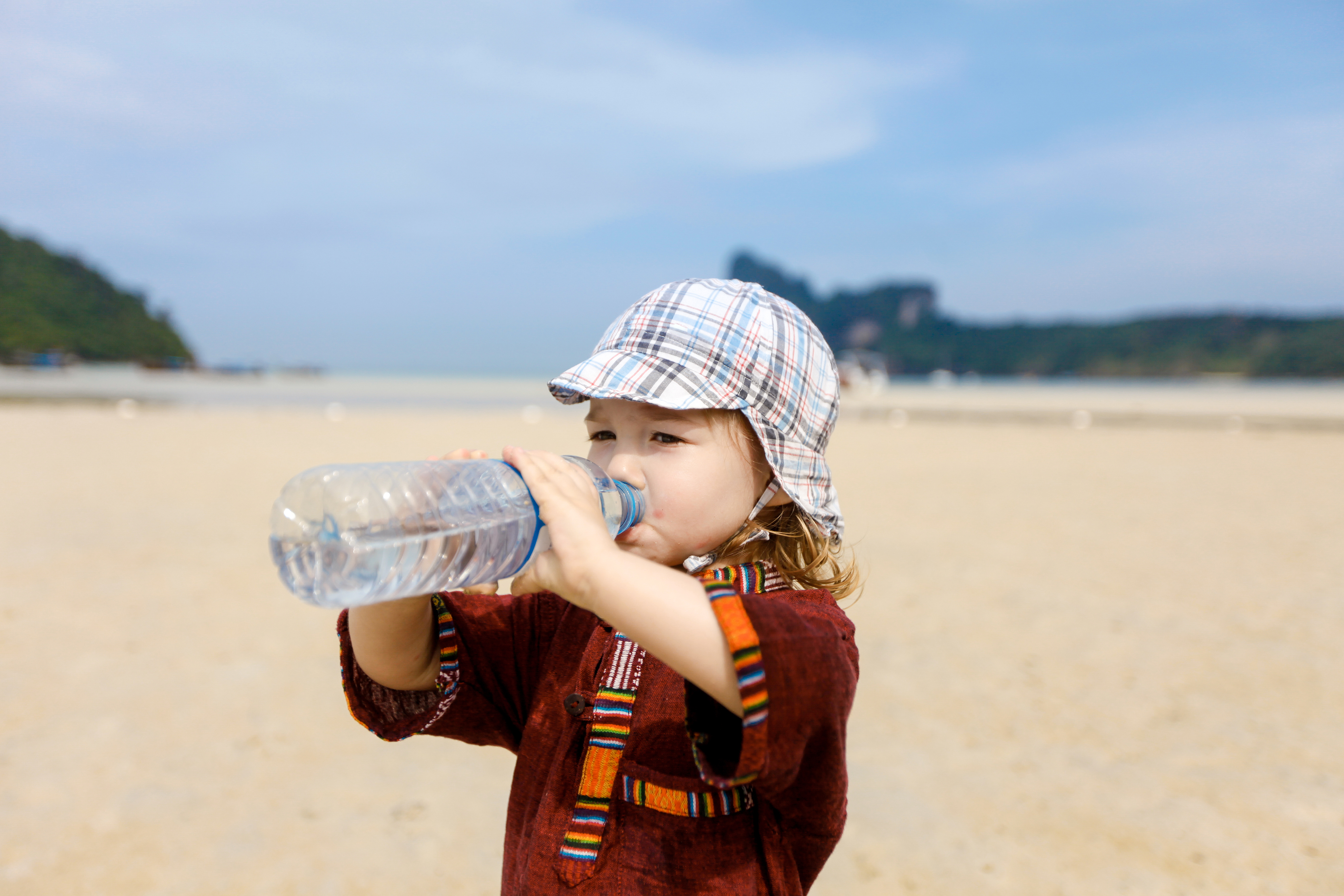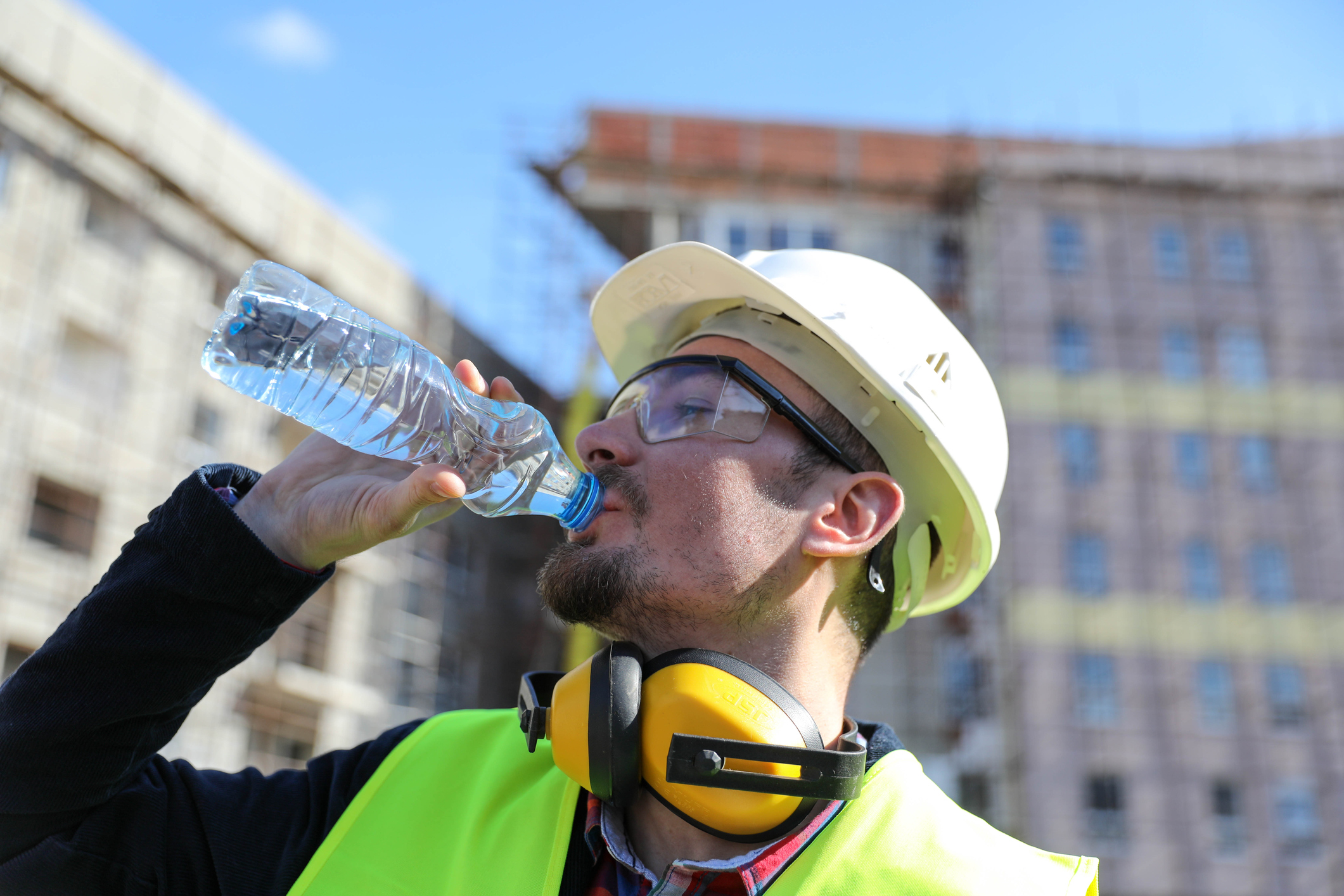ST. GEORGE — With temperatures predicted to be in the triple digits by Tuesday, health and public safety officials are urging residents and visitors to be mindful of the heat and stay hydrated to avoid becoming a heat-related statistic.

“Even though most heat-related deaths are preventable through outreach and intervention,” heat is the leading cause of weather-related deaths, according to the Environmental Protection Agency. The Centers for Disease Control and Prevention estimates that over 1,200 people die in the country each year due to extreme heat.
In Southern Utah, exposure to the sun and the heat it produces go hand-in-hand.
“A reason people live here and they’re interested in coming to Southern Utah is because we have over 300 days of sunshine per year,” said David Heaton, a spokesman for the Southwest Utah Public Health Department. “It’s great for outdoor recreation and for people trying to get away from the colder, more wintery weather.”
Unprotected exposure to sunlight is also good for health, such as providing a dose of vitamin D and increasing serotonin production — but there’s a limit.
“We still want to get a little sunlight,” Heaton said but added that anything beyond 15 minutes daily should be met with precautionary measures.
If you are working or playing outside for an extended period of time, Heaton recommends wearing protective clothing and hats to keep your skin from getting overexposed to the sun and applying sunscreen with an SPF of 30 or higher.
Children and pets should never be left in a car when it’s hot outside.
“Never leave (them) in a vehicle for any period of time,” Heaton said. “It can overheat within minutes.”

Recommendations on how to care for pets during the summer can be found at this link.
Staying hydrated is also critical and often overlooked, as noted by the health department and public safety authorities like Washington County Sheriff’s Sgt. Darrell Cashin, who oversees Washington County Sheriff’s Search and Rescue.
“The biggest thing we’re seeing again – as I’ve repeated many times – is not taking enough supplies – especially water,” Cashin told St. George News.
If you’re planning to visit the great outdoors, Cashin said you need to start hydrating the day before you head out and take more than a water bottle out on the trail. If the temperatures reach into the triple-digit range, you’re better off staying home, he said.
Not having enough water during the hot months can potentially lead to death.
Bring on the water – stay hydrated
Dehydration, as defined by the Mayo Clinic, is a state when your body loses more fluid than it takes in. Dehydration can affect anyone of any age if adequate water is not consumed.
Symptoms can include generalized weakness, lightheadedness, confusion, cyclic nausea and vomiting, thirst (but not always), and apple juice-colored urine.

Prolonged dehydration can result in falling (which can result in injury), kidney failure and death.
Hydrating with water is considered the best way to combat dehydration unless there is strenuous exertion or other unusual circumstances.
A person shouldn’t wait until they are thirsty, as thirst isn’t always the best way to tell if you need a drink. By the time your body is telling you that you need a drink, you’re already low on fluids.
Also hydrate and rehydrate before, during and after an activity. Fluid losses increase as the body sweats. Take water or other fluids with each meal, and also take water with you wherever you go, particularly during hot weather.
Foods with high water content, such as fruits and vegetables, are also recommended.
It should be noted that older adults, young children and infants are at higher risk for dehydration than others.
The following tips were previously provided to St. George News by medical professionals with Intermountain Health.
Attention to older adults
Dehydration can pose a greater risk to older adults, who may be less aware of thirst, less mobile, or on diuretics or medications that amplify the effects of dehydration. Compromised kidney function and certain medications may cause water loss. The ability or inability to provide self-care may also be a factor that increases the risk of dehydration.
Attention to kids
Parents can make sure their children stay hydrated by:
- Scheduling water or beverage breaks, especially if kids are playing.
- Serving a beverage with meals and snacks.
- Giving them their own “cool” water bottle and keeping it filled.
- Offering beverages other than water on occasion to add calories, added electrolytes and variety, especially for active kids.
Attention to infants

Babies need to be kept out of the heat if possible.
A good sign that babies are properly hydrated is that they are wetting their diapers around five to six times a day.
Small amounts of clear liquids should be given frequently if a baby is feverish or vomiting. If fluids can’t be retained, then it’s time to visit the emergency room.
Heat exhaustion and heatstroke
Heat exhaustion can accompany dehydration, according to WebMD. Water depletion is one of two types of heat exhaustion that can occur and includes symptoms of excessive thirst, weakness, headache and loss of consciousness. Salt depletion, the other type of heat exhaustion, is marked by signs of nausea and vomiting, muscle cramps and dizziness.
Symptoms to watch for:
- Confusion.
- Dark-colored urine.
- Dizziness.
- Fatigue.
- Headache.
- Muscle or abdominal cramps.
- Nausea, vomiting or diarrhea.
- Pale skin.
- Profuse sweating.
- Rapid heartbeat.

Heat exhaustion can be treated by getting the affected individual into an air-conditioned room or shaded area if getting indoors isn’t an option. They also need to drink plenty of fluids – caffeine and alcohol are not encouraged. Removing restricted clothing and getting the person into a cool shower, bath or sponge bath is also advised.
If efforts to provide relief fail within 15 minutes, seek emergency medical aid as heatstroke can occur if heat exhaustion remains untreated.
Heatstroke is a condition caused by the body overheating, usually as a result of prolonged exposure to or physical exertion in high temperatures, according to the Mayo Clinic. This most serious form of heat injury, heatstroke can occur if your body temperature rises to 103 degrees Fahrenheit or higher.
Emergency treatment is required when dealing with heatstroke. Without it, a person can quickly sustain damage to the brain, heart, kidneys and muscles. The damage gets worse the longer the condition goes without treatment. This can ultimately result in death.
Symptoms of heatstroke include:
- Elevated temperature of 103 degrees or higher — this is the primary symptom of heatstroke.
- Altered mental state and erratic behavior — confusion, slurring words, agitation, delirium, seizures or coma.
- Unusual sweating patterns — the skin of a person suffering from heatstroke brought on by exposure to high temperatures will often feel dry to the touch; whereas the skin of a person suffering from heatstroke brought on by overexertion will likely feel moist.
- Nausea and vomiting.
- Flushed skin.
- Rapid breathing.
- Accelerated heart rate.
- Headache.
A person with heatstroke needs immediate medical attention. Call 911 or call local emergency services.
Remove the person from the heat and/or sun, and get them indoors or into the shade. Remove all excessive clothing. Get the person cool by any means necessary — get them into a tub of cool water or into a cool shower. Spray them with cool water, give them a cool sponge bath or place ice packs on their head, armpits or groin areas.
Tips for beating the heat

The National Weather Service maintains a list of tips on how to stay healthy during excessive heat events.
- Slow down. When temperatures soar, it is time to reduce overall exertion and reserve high-energy activities for the coolest portions of the day. In particular, young children and the elderly should attempt to stay in the coolest possible place, which may not necessarily be indoors.
- Dress appropriately. Wear lightweight, loose-fitting clothing that is light in color in order to reflect both sunlight and heat.
- Eat the right foods. Light, easy-to-digest foods with high water content such as salads, fruits or vegetables are ideal. When packing food, make sure it is stored in a cooler or packed with an ice pack. Hot weather makes foods spoil faster.
- Drink lots of water. Avoid alcoholic or caffeinated drinks. Drink even when not thirsty. If you are on a diet that restricts fluid intake or you are unable to retain fluids, make sure to consult with a physician.
- Embrace air conditioning. Utilize air-conditioning in the car or at home, or spend time in air-conditioned locations such as libraries or malls.
- Minimize direct exposure to the sun. The human body cannot dissipate heat as efficiently when exposed to direct sunlight.
- Use electric fans to reduce room temperature, but do not point fans directly at your body. The air current will lead to dehydration more quickly.
- Take cool showers or baths.
- Unless directed by a physician, do not take salt tablets.
- Keep a close eye on the elderly, ill, children and pets. Each year, numerous children and pets left in parked vehicles die from hyperthermia.
- Keep valuable electronic equipment out of hot cars.
- If using volatile chemicals, make sure rooms are well-ventilated.
Copyright St. George News, SaintGeorgeUtah.com LLC, 2024, all rights reserved.